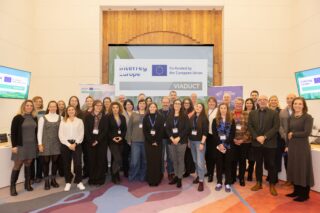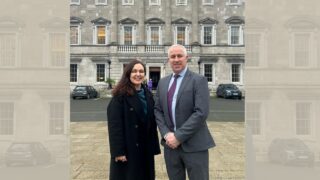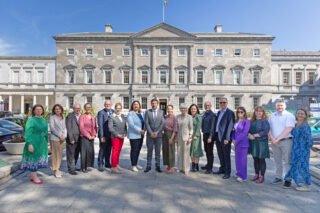The Western Development Commission (WDC) have today published summary data from the recent survey of Creative Economy SMEs in the Galway, Mayo, and Roscommon counties. This sector survey was commissioned by the WDC and undertaken by Dr Patrick Collins NUIG (School of Geography, Archaeology and Irish Studies and the Whitaker Institute), under the auspices of the West Regional Enterprise Plan[1]. The survey gathered responses from over 140 Creative Economy businesses and sought to identify and examine the challenges and opportunities they faced during the Pandemic.
The WDC will continue to support the many SMEs within the sector through the WRAP fund, the CREW project and other on-going initiatives in the western region.
Tomás Ó Síocháin, CEO, WDC
‘The Creative Economy has faced particular challenges during the pandemic. However, as underlined again in this research, the sector is particularly strong in the region and is very well positioned to take advantage of emerging opportunities into the future. The WDC will continue to support the many SMEs within the sector through the WRAP fund, the CREW project and other on-going initiatives in the western region.” said Tomás Ó Síocháin, CEO of the Western Development Commission
This is the first such survey to engage the creative community in depth during these times and as such has delivered an interesting insight into the manner of needs the sector itself sees as required to ensure long term growth. “Despite the challenges of recent times, this survey of practitioners shows that the creative economy in our Region continues to be an area of real strength and potential. That said, the results show that we need to consider specific actions to assist audience facing sectors and address embedding long term growth” said Ian Brannigan, Head of Regional Development WDC.

The value of the creative economy to the Galway. Mayo and Roscommon area in 2018 was approaching half a billion euros and it employed in excess of 7,400. It exported €57M and due to the size of the average business in the sector there were over 3000 SMEs involved.
As the survey was undertaken at the end of 2020 the Covid impact on the sector was the primary driver of the significant short-term impacts. The survey found that, SMEs predicted an 13% average fall in sales for 2020, with the Craft sector seeing the largest fall at nearly 30%. Similarly, those subsectors involved in live performances or visitors predicted significant reductions in business. Music and Cultural facilities predicted losses in excess of 50%. Reflecting the wide variety within the creative economy, certain segments also predicted increases in sales, these included SMEs who identified as animation, gaming, and design operations.
Despite the challenges of recent times, this survey of practitioners shows that the creative economy in our Region continues to be an area of real strength and potential.
Ian Brannigan, Head of Regional Development WDC
In terms of Employment the survey also showed a similar near-term pattern with the creative economy as a whole predicting a loss of just over 10% by the end of 2020. Here the biggest loss was predicted in the Cultural sub-sector (20%). “The impacts of this pandemic will be felt for years to come. Many lessons have been learned, one key one is the importance of culture and creativity to the human condition. This report attempts to gauge how culture and the creative economy of the GMR has been affected by the pandemic”. Stated Dr Patrick Collins NUIG.

However, the Survey shows that when asked to predict employment levels in the next three to five years the SMEs were more optimistic and on average predicted a 10% rise.
The survey report also outlines the areas of opportunity and support outlined by the respondents and concludes with recommendations on how the Regional Creative Economy may be supported in the coming years.
The WDC have publish the summarised findings in the “Reinforcing the Creative West” document and also the complete survey report “Measuring the Creative Sector in the Galway, Mayo and Roscommon Region” on its website and partner websites.
Read accompanying information on the WDC Creative Economy page, HERE.





